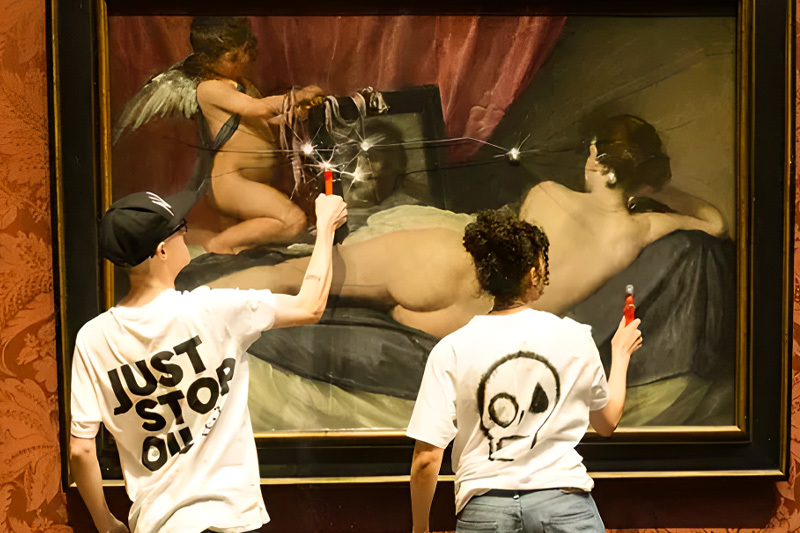
Check Out: Are Just Stop Oil’s Disruptive Tactics Against The Law?
Two Just Stop Oil protesters have been arrested for smashing the glass covering the Rokeby Venus painting by Diego Velázquez at the National Gallery in London.
The artwork was previously attacked by suffragette Mary Richardson with a meat cleaver in March 1914 during a demonstration against the arrest of Emmeline Pankhurst, an activist.
One of those involved on Monday act said: “Women did not get the vote by voting; it is time for deeds not words.” Police also detained dozens of others who blocked Whitehall.
“Nonviolent Civil Resistance” Disruptive Tactics
The protests come as the British government has revealed plans to mandate oil and gas licensing in the North Sea in an effort to reduce reliance on “hostile foreign regimes”.
Just Stop Oil has become increasingly prominent over its “nonviolent civil resistance” tactics to disrupt public events in an attempt to draw attention to the climate emergency.
Disruptive tactics deployed by the environmental activist group have divided opinion. Are its actions against the law? Read on to find out.
Keep Reading
Sparking Chaos At Major Sporting Events
Just Stop Stop protesters have set up roadblocks to bring motorways to a standstill and made headlines through publicity stunts like throwing tomato soup at Vincent Van Gogh’s painting.
But sparking chaos at major sporting events is becoming the group’s signature form of demonstration and has certainly yielded some extraordinary scenes.
While few would agree with the justness of Just Stop Oil’s cause, many would raise concerns over the strategies its members deploy in promoting it.
Are Just Stop Oil’s Actions Against The Law?
In the case of blocking motorways, the answer is no, with the protesters subject to fines and a maximum penalty of 51 weeks in prison under the new Public Order Act 2023.
As for Just Stop Oil’s disruptive actions at sporting events, everyone has a right to stage a peaceful demonstration and to protect themselves under the Human Rights Act.
That said, that right is not absolute and police can limit protests if they have reason to believe “serious public disorder” or “serious damage to property” could arise from it.




